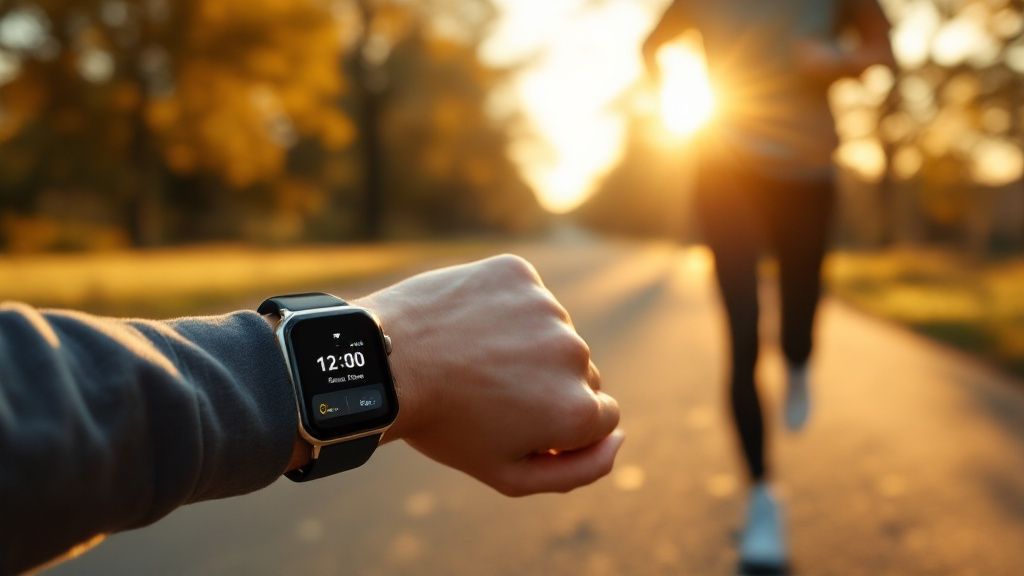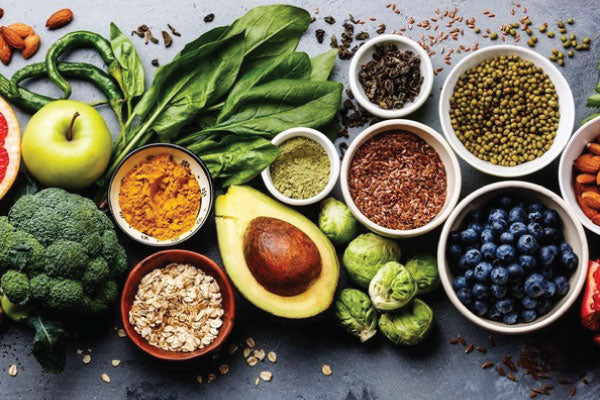Understanding and Tackling Stress Naturally
Feeling overwhelmed? Learn how to naturally combat stress and reclaim your well-being. This listicle explores ten effective natural stress remedies, from mindfulness and exercise to CBD and aromatherapy. We'll cover how stress impacts your body, the different types of stress you may experience, and why chronic stress is detrimental to your health. Discover how incorporating natural approaches, including SMOKO CBD products and lifestyle adjustments, can help you manage daily pressures and improve your overall health. We'll also discuss how CBD interacts with your endocannabinoid system to potentially alleviate stress, and explain the differences between CBD isolate, broad-spectrum, and full-spectrum CBD. Finally, we'll offer a suggested CBD dosing regimen for stress management.
What is Stress?
What exactly is stress, and why is managing it so important? Stress is your body's natural response to demands and pressures. It triggers a cascade of hormones like cortisol and adrenaline, preparing you for "fight or flight." In small doses, stress can be motivating. However, chronic stress – the kind that lingers – wreaks havoc on your well-being. Daily stressors, ranging from work deadlines and financial worries to relationship issues and traffic jams, can accumulate and lead to chronic stress. This persistent state of heightened alert can manifest physically (headaches, muscle tension, digestive problems), emotionally (anxiety, irritability, low mood), and even behaviourally (changes in sleep, appetite, and social withdrawal). Over time, chronic stress can contribute to serious health issues like heart disease, weakened immunity, and burnout.
1. Mindfulness Meditation
Mindfulness meditation is a powerful natural stress remedy that involves focusing your attention on the present moment without judgment. It's a mental training practice that cultivates awareness of your thoughts, feelings, bodily sensations, and surrounding environment. By anchoring your attention to your breath or body sensations, you interrupt the cycle of negative thoughts, reducing stress by shifting your focus from past regrets or future worries to the here and now. This helps create a sense of calm and groundedness amidst the daily pressures of life.
 Thankfully, there are numerous natural ways to manage stress, and mindfulness meditation stands out as a highly effective technique. Regular exercise, spending time in nature, nurturing social connections, enjoying massages, and practicing breathing exercises can all play a significant role in stress reduction. Incorporating natural remedies, like CBD, can also offer additional support.
Thankfully, there are numerous natural ways to manage stress, and mindfulness meditation stands out as a highly effective technique. Regular exercise, spending time in nature, nurturing social connections, enjoying massages, and practicing breathing exercises can all play a significant role in stress reduction. Incorporating natural remedies, like CBD, can also offer additional support.
Mindfulness meditation comes in various forms, including focused attention (concentrating on a single point, like the breath), body scan (bringing awareness to different parts of the body), and loving-kindness meditation (cultivating feelings of compassion). It deserves a place on this list of natural stress remedies due to its proven effectiveness and accessibility. It requires no special equipment and can be practiced anywhere, anytime.
Features:
-
Focus on present moment awareness
-
Non-judgmental observation of thoughts
-
Can be practiced anywhere
-
No special equipment needed
-
Various forms including focused attention, body scan, and loving-kindness meditation
Pros:
-
Scientifically proven to reduce cortisol levels
-
Improves emotional regulation
-
Can be practiced for as little as 5 minutes
-
Helps develop resilience to stressors
-
Complements other stress management techniques, including the use of CBD products.
Cons:
-
Requires consistent practice for maximum benefit
-
May be challenging for beginners to quiet their mind
-
Some traditions may seem spiritually oriented, which may not appeal to everyone
-
Initial results may be subtle
Examples of Successful Implementation:
-
Jon Kabat-Zinn's Mindfulness-Based Stress Reduction (MBSR) program is widely recognised and implemented in numerous healthcare settings.
-
Organisations like Google have integrated mindfulness training for their employees.
Tips for Practicing Mindfulness Meditation:
-
Start with just 5 minutes daily and gradually increase the duration.
-
Use guided meditation apps for beginners.
-
Practice at the same time each day to establish a habit.
-
Find a quiet space where you won't be disturbed.
-
When your mind wanders (and it will!), gently redirect your attention back to your breath without self-criticism.
2. Physical Exercise
Regular physical activity earns its place as a top natural stress remedy for a multitude of reasons. Stress, in essence, is your body's response to demands and pressures. It manifests physically through increased heart rate, muscle tension, and the release of hormones like cortisol. In our daily lives, we encounter various stressors, from work deadlines and financial worries to relationship issues and traffic jams. Fortunately, incorporating physical exercise into your routine can significantly mitigate the detrimental effects of chronic stress.

Exercise functions as a powerful natural stress reducer by decreasing stress hormones like cortisol and stimulating the production of endorphins. These endorphins are natural mood elevators that create a sense of well-being and can even provide temporary pain relief. Beyond the immediate mood boost, exercise also improves sleep quality, a crucial factor in stress management. By promoting better sleep, exercise further reduces cortisol levels and helps break the cycle of stress. Regular physical activity also increases energy levels, reduces fatigue, and builds resilience to future stressors, effectively equipping you to better handle life's inevitable challenges. Furthermore, it addresses the physical manifestations of stress, such as muscle tension, helping you feel more relaxed and at ease.
The stress-relieving benefits of exercise aren't dependent on high-intensity training. Whether it's a brisk walk, a yoga session, a cycle to work or a strength-training workout at the gym, both vigorous and moderate activities can be effective. This flexibility makes it accessible to a wider range of individuals, regardless of their fitness level or physical limitations. Incorporating exercise into your routine alongside other natural stress remedies, like nature walks, socialising, massage, meditation, and breathing exercises, can create a holistic approach to stress management. Consider also exploring natural remedies like SMOKO CBD products, which can complement these lifestyle changes, and even aid in exercise recovery.
Features of Exercise for Stress Relief:
-
Reduces stress hormones (cortisol) and increases endorphins.
-
Can be aerobic, strength-based, or flexibility-focused (yoga, Pilates).
-
Offers both immediate and long-term stress relief.
-
Improves overall physical health while reducing mental stress.
-
Can be social (team sports, group fitness classes) or solitary (running, swimming) depending on preference.
Pros:
-
Immediately elevates mood through endorphin release.
-
Improves sleep quality, which further reduces stress.
-
Increases energy levels and reduces fatigue.
-
Builds resilience to future stressors.
-
Addresses physical manifestations of stress such as muscle tension.
Cons:
-
Requires time commitment.
-
May be challenging for those with physical limitations.
-
Overtraining can potentially increase stress levels.
-
Weather can limit outdoor exercise options.
-
Initial motivation can be difficult for some people.
Examples of Successful Implementation:
Corporate wellness programs, like those at Johnson & Johnson, often incorporate exercise initiatives and report decreased healthcare costs and absenteeism. The 'Exercise is Medicine' initiative by the American College of Sports Medicine promotes physical activity as a vital part of healthcare and has been implemented in healthcare systems globally. Even simple practices like Japan's 'Radio Taiso' workplace exercise breaks, practiced nationally since 1928, highlight the recognised benefits of regular movement for stress reduction.
Tips for Incorporating Exercise for Stress Relief:
-
Find activities you genuinely enjoy: This will increase consistency and make exercise feel less like a chore.
-
Start small: If you're new to exercise, begin with just 10 minutes daily and gradually increase the duration and intensity.
-
Schedule workouts like important appointments: Treat them as non-negotiable to ensure you prioritise your well-being.
-
Mix different types of exercise: This provides mental and physical variety, keeping you engaged and preventing boredom.
-
Use "habit stacking": Add exercise to existing routines, such as taking the stairs instead of the lift or walking or cycling part of your commute.
By consistently implementing these tips and choosing activities that suit your preferences, you can harness the power of physical exercise as a potent and accessible natural stress remedy. Coupled with other lifestyle modifications and potentially complementary therapies like CBD, exercise can play a crucial role in achieving overall wellness and managing stress effectively.
3. Adaptogenic Herbs
Thankfully, nature provides an array of stress-relieving tools. Regular exercise, immersing oneself in nature, nurturing social connections, therapeutic massages, meditation, and deep breathing exercises are all effective natural stress remedies. These practices help regulate the nervous system, promote relaxation, and build resilience.
In addition to these lifestyle adjustments, incorporating natural remedies can further support stress management. Adaptogens are a class of herbs and mushrooms that help the body adapt to stress and restore normal physiological functioning. These plants have been used for centuries in traditional Chinese and Ayurvedic medicine systems. They work by modulating the body's stress response system, particularly the hypothalamic-pituitary-adrenal (HPA) axis, helping to balance cortisol levels and improve resilience to both physical and mental stressors over time.

Adaptogens possess unique features that make them valuable natural stress remedies. Their non-specific action helps the body resist various stressors, normalising physiological functions regardless of the direction of change. They're generally considered safe for long-term use and can be consumed as teas, tinctures, capsules, or powders, working through multiple pathways in the body's stress response system.
Pros: Adaptogens help the body adapt to both acute and chronic stress, may improve energy without stimulant effects, support immune function during stressful periods, can improve mental clarity and focus, and often have additional health benefits beyond stress reduction.
Cons: Effects are typically gradual and cumulative rather than immediate. Quality and potency can vary significantly between products. They may interact with certain medications, and scientific research is still emerging for many adaptogens. High-quality preparations can be relatively expensive.
While adaptogens can be beneficial, another natural stress remedy is CBD, which interacts with the body's endocannabinoid system (ECS). This system plays a crucial role in regulating various bodily functions, including mood, sleep, and stress response. CBD may help to reduce stress and anxiety by influencing ECS receptors, promoting a sense of calm and well-being. SMOKO CBD offers a range of CBD products designed to support well-being.
This multifaceted approach to stress management – incorporating lifestyle changes, exploring natural remedies like adaptogens, and considering CBD – offers a holistic path toward greater resilience and well-being. Remember, finding what works best for you is crucial, so experiment with different techniques and listen to your body.
4. Breathwork Techniques: A Natural Stress Remedy
Breathwork encompasses various breathing exercises that influence both physiological and psychological states. By consciously altering breathing patterns, these techniques directly impact the autonomic nervous system, shifting the body from the stress-inducing sympathetic nervous system ("fight-or-flight") to the calming parasympathetic nervous system ("rest-and-digest"). This makes breathwork one of the fastest natural stress remedies for reducing acute stress, as it provides an immediate physiological signal of safety to the brain.
Features and Benefits of Breathwork:
-
Requires no special equipment or environment.
-
Can be practiced discreetly almost anywhere.
-
Offers immediate physiological calming effects.
-
Variety of techniques for different situations and outcomes.
-
Direct pathway to influence autonomic nervous system function.
-
Provides immediate stress relief in acute situations.
-
Free and accessible to everyone.
-
Can be practiced for brief periods with significant effect.
-
Builds awareness of stress responses in the body.
-
Serves as a foundation for other stress management practices.
Pros and Cons:
-
Pros: Provides immediate stress relief, free and accessible, effective even in short bursts, builds body awareness.
-
Cons: Initial discomfort with some techniques, potential lightheadedness if done incorrectly, difficulty remembering to practice during high stress, some advanced techniques require guidance. It's also important to remember that while breathwork can alleviate stress symptoms, it doesn't necessarily address the root causes.
Examples of Breathwork in Practice:
-
The SKY Breathing program, taught to millions worldwide through the Art of Living Foundation.
-
Tactical Breathing, used by the military to maintain calm under pressure.
-
Google's 'gPause' program incorporates breathwork for employee stress management.
Tips for Effective Breathwork:
-
Practice when calm to build the skill for stressful situations.
-
Set reminders to check and regulate breathing throughout the day.
-
Start with simple techniques like 4-7-8 breathing (inhale for 4 seconds, hold for 7, exhale for 8) before trying more advanced methods.
-
Combine with body awareness by feeling the physical sensations of breathing.
-
Use breathwork before potentially stressful events as a preventative measure.
Popularized By:
-
Dr. Andrew Weil (4-7-8 breathing)
-
Wim Hof (Wim Hof Method)
-
Dr. Patricia Gerbarg and Dr. Richard Brown (Coherent Breathing)
-
Apps like Breathwrk, Calm, and Headspace
Breathwork earns its place on this list of natural stress remedies because it is a readily accessible, powerful tool for immediately managing stress. Its portability and effectiveness make it an invaluable technique for anyone seeking to navigate the challenges of modern life.
5. Nature Therapy (Ecotherapy): A Natural Stress Remedy
Nature therapy, also known as ecotherapy or green therapy, harnesses the restorative power of the natural world to combat stress and enhance mental health. This approach recognises our inherent connection to nature (biophilia) and utilises it to replenish psychological resources depleted by the demands of modern life, particularly urban living and excessive screen time. It deserves a place on this list because it is a readily accessible, cost-effective, and enjoyable way to alleviate stress, boost mood, and improve overall health.
Nature therapy encompasses a wide range of activities, from immersive wilderness experiences to simply spending time in urban parks or even bringing nature indoors with houseplants. The Japanese practice of shinrin-yoku (forest bathing), which involves mindfully engaging with the forest through all five senses, is a well-researched form of nature therapy proven to reduce stress hormones and promote relaxation.
Features and Benefits:
-
Combines physical activity, fresh air, natural light, and sensory engagement.
-
Provides psychological distance from stressors.
-
Exposes you to beneficial phytoncides (mood-boosting aromatic compounds from plants).
-
Encourages mindfulness and present-moment awareness.
-
Reduces cortisol levels and sympathetic nervous system activity.
-
Improves mood, self-esteem, cognitive function, and creativity.
Pros and Cons:
-
Pros: Free or low-cost, combines well with other stress reduction strategies (e.g., exercise, meditation), accessible in various forms.
-
Cons: Access limitations in urban areas, weather dependency, potential challenges for those with mobility issues or allergies, time constraints, and some inherent risks in natural environments.
Examples of Successful Implementation:
-
Japan's 62 designated forest therapy bases offer standardised healing forests.
-
South Korea has invested heavily in forest therapy infrastructure.
-
The "Park Prescription" movement sees doctors formally prescribing nature time for health improvements.
Tips for Incorporating Nature Therapy:
-
120 Minutes Weekly: Aim for at least two hours per week in nature for significant well-being benefits.
-
Sensory Engagement: Consciously notice the sights, sounds, smells, and textures of your surroundings.
-
Sit Spot: Establish a regular spot in nature for quiet reflection.
-
Bring Nature Indoors: Use plants, natural materials, nature sounds, or views to connect with nature at home.
-
Micro-Doses of Nature: Take short breaks in a garden or eat lunch outside.
Popularized By:
-
Dr. Qing Li, a world expert on forest medicine and author of Forest Bathing.
-
Richard Louv, author of Last Child in the Woods who coined the term "nature deficit disorder."
-
Organisations like the Association of Nature and Forest Therapy.
By embracing nature therapy and exploring the potential benefits of CBD, you can effectively manage stress and cultivate a greater sense of calm and well-being in your life.
6. Dietary Approaches for Stress Management
Daily life in the UK presents various stressors, from work pressures and financial concerns to relationship issues and commuting hassles. These chronic stressors, often compounded by a fast-paced lifestyle, contribute significantly to the widespread prevalence of stress-related health issues. Thankfully, natural stress remedies, including dietary approaches, can offer significant support. These approaches deserve a place on any stress-management list because they address the root biological causes of stress rather than just masking the symptoms.
Nutritional strategies can significantly impact the body's stress response system. This approach acknowledges the bidirectional relationship between nutrition and stress—stress affects our food choices and digestion, while our diet influences how resilient we are to stressors. A stress-supportive diet, rich in whole foods, provides ongoing support rather than just acute relief, and combines stress reduction with overall health benefits. It can be personalised based on individual needs and preferences, empowering you through everyday choices rather than requiring dedicated time for specialised practices.
Features of a stress-reducing diet:
-
Focus on anti-inflammatory whole foods: fruits, vegetables, whole grains, and lean protein.
-
Regular eating patterns to maintain blood sugar stability, preventing energy crashes and mood swings.
-
Emphasis on stress-reducing nutrients: omega-3 fatty acids, magnesium, B vitamins, and antioxidants.
-
Consideration of the gut-brain connection through fermented foods like yogurt and kefir.
-
Mindful consumption of caffeine and alcohol, both of which can exacerbate stress.
Pros:
-
Addresses biological foundations of the stress response.
-
Provides ongoing support.
-
Offers overall health benefits.
-
Personalised and flexible approach.
Cons:
-
Results may take time to notice.
-
Requires planning and preparation.
-
Social situations may present challenges.
-
Some stress-supportive foods can be expensive.
-
Navigating conflicting nutrition information can be confusing.
Examples of successful implementation:
-
The Mediterranean diet pattern, rich in fruits, vegetables, whole grains, and healthy fats, has been associated with lower stress levels and a reduced risk of depression.
-
The SMILES trial demonstrated that dietary improvements significantly reduced clinical depression.
Tips for incorporating dietary changes:
-
Start the day with protein and healthy fats to stabilise blood sugar.
-
Keep stress-supportive snacks available (nuts, dark chocolate, fruit).
-
Reduce caffeine intake, especially after noon.
-
Hydrate adequately as even mild dehydration increases cortisol.
-
Practice mindful eating by eliminating distractions during meals.
Beyond diet, incorporating other natural stress remedies can create a holistic approach. Regular exercise, nature walks, socialising with loved ones, massages, meditation, and breathing exercises can all significantly reduce stress levels.
SMOKO CBD Products and Diet:
SMOKO offers a variety of high-quality CBD products suitable for stress management, including CBD oils, CBD capsules, and CBD gummies. There is also good evidence that CBD can help to improve gut health, further improving the impact of dietary changes.
7. Progressive Muscle Relaxation (PMR)
Among these effective natural stress remedies, Progressive Muscle Relaxation (PMR) stands out as a powerful technique for achieving both physical and mental calm.
Progressive Muscle Relaxation (PMR) is a systematic technique that involves tensing and then releasing different muscle groups throughout the body. Developed by American physician Edmund Jacobson in the 1920s, PMR works on the premise that physical relaxation leads to mental relaxation. This practice helps individuals recognise the difference between tension and relaxation, become aware of subtle body signals, and deliberately release the physical stress that accumulates in the body. Regular practice can lower baseline tension levels and improve stress resilience, earning it a deserved place on this list of natural stress remedies.
Features of PMR:
-
Systematic tensing and relaxing of muscle groups in sequence.
-
Can be performed lying down or seated.
-
Usually progresses from feet to head or vice versa.
-
Typically takes 10-30 minutes for a full session.
-
Can be adapted to focus on areas of particular tension.
Pros:
-
Evidence-based technique with decades of research support.
-
No special equipment or environment needed.
-
Provides both immediate and cumulative benefits.
-
Helps develop greater body awareness.
-
Can improve physical symptoms like headaches and back pain.
Cons:
-
May be difficult for those with certain physical conditions or injuries.
-
Requires quiet and uninterrupted time to practice properly.
-
Can cause temporary discomfort when tensing muscles.
-
May induce sleepiness, making it less suitable for daytime use for some.
-
Results are most significant with regular practice over time.
Examples of PMR Implementation:
-
Used in clinical settings for anxiety disorders, with 75-80% of patients experiencing significant relief.
-
Incorporated into chronic pain management programmes at Mayo Clinic and other major medical centres.
-
Standard component of stress management in many employee wellness programmes.
Tips for Practicing PMR:
-
Use audio guidance when learning the technique.
-
Practice at the same time daily to establish a routine.
-
Tense muscles firmly but not to the point of pain.
-
Focus on the contrast between tension and relaxation.
-
Start with a shortened version focusing on major muscle groups if time is limited.
Popularized By:
-
Dr. Edmund Jacobson, creator of the technique.
-
Dr. Herbert Benson, who incorporated PMR into his Relaxation Response work.
-
Dr. Jon Kabat-Zinn, who included PMR in Mindfulness-Based Stress Reduction.
-
Therapists specialising in Cognitive Behavioural Therapy (CBT).
CBD and Muscle Relaxation:
In addition to PMR, CBD can play a supportive role in managing stress by interacting with the body's endocannabinoid system (ECS). In this case, CBD works by regulating the neurotransmitter signalling to muscles, thereby helping to address muscle issues and promote muscle relaxation.
8. Social Connection and Support: A Natural Stress Remedy
Social connection acts as a potent buffer against stress, regulating our emotional well-being in profound ways. Quality relationships, whether with intimate partners, friends, family members, community groups, or even through brief positive interactions, provide a crucial sense of belonging and support that directly counteracts the isolating effects of stress. These positive social interactions trigger the release of oxytocin and endorphins, often dubbed the "feel-good" hormones, which work to reduce cortisol levels and activate the parasympathetic nervous system, promoting relaxation and a sense of calm.
How Social Connection Combats Stress:
-
Emotional Validation and Processing: Sharing experiences with empathetic listeners validates our feelings and helps us process difficult emotions, reducing the burden of stress.
-
Shared Problem-Solving: Connecting with others provides opportunities for brainstorming and receiving practical support in tackling stressful situations.
-
Distraction and Enjoyment: Engaging in enjoyable social activities offers a welcome distraction from worries and promotes positive emotions.
-
Purpose and Meaning: Belonging to a supportive network fosters a sense of purpose and meaning beyond individual concerns, bolstering resilience against stress.
Examples of Social Connection in Action:
-
The Blue Zones research, which studied the world's longest-lived communities, identified strong social ties as a key factor contributing to their longevity and well-being.
-
Support groups, like Alcoholics Anonymous, exemplify the power of shared experience and mutual support in managing stressful life challenges.
-
The Roseto Effect, a landmark study, demonstrated how strong community bonds protected an Italian-American community from heart disease despite having unhealthy diets.
Pros and Cons of Social Connection as a Stress Remedy:
Pros:
-
Directly buffers the physiological stress response.
-
Often provides enjoyment alongside stress relief.
-
Builds resilience for future stressors.
-
Can offer practical support with stressors.
-
Associated with a longer lifespan and better health outcomes.
Cons:
-
Negative or demanding relationships can exacerbate stress.
-
Can be challenging for those with social anxiety.
-
Requires vulnerability, which can be difficult during stressful times.
-
Quality connections take time and effort to develop.
-
Geographic mobility can disrupt support networks.
Tips for Cultivating Supportive Connections:
-
Schedule regular check-ins with supportive friends or family.
-
Join groups based on interests (e.g., book clubs, sports teams, hobby groups) rather than explicitly for support – this can feel more natural and less daunting.
-
Practice active listening to deepen connections with those around you.
-
Be willing to ask for help and support when needed.
-
Diversify your social network across different contexts (work, hobbies, neighbourhood).
9. Aromatherapy and Essential Oils: A Natural Stress Remedy
Aromatherapy harnesses the therapeutic properties of essential oils—concentrated plant extracts that capture the essence of plants' beneficial compounds. When inhaled, aromatic molecules travel directly to the brain's limbic system, influencing emotions, memory, and stress responses. Some essential oils, like lavender and bergamot, possess sedative, anxiolytic, or mood-elevating properties that can quickly alter physiological and psychological states. Aromatherapy is often used as a complementary approach, and research increasingly supports its effectiveness for stress reduction, particularly for acute stress and anxiety.
Features and Benefits:
-
Utilises volatile aromatic compounds: The potent plant extracts deliver a concentrated sensory experience.
-
Versatile administration: Enjoy the benefits through inhalation, topical application (always diluted with a carrier oil like coconut or jojoba oil), or in some cases, ingestion (under the guidance of a qualified aromatherapist).
-
Dual-action mechanism: Aromatherapy works through both psychological associations (e.g., the calming scent of lavender) and pharmacological effects (e.g., the anxiolytic properties of certain compounds).
-
Rapid effects: The direct pathway to the limbic system allows for a relatively quick impact on mood and stress levels.
-
Personalisation: Choose scents that resonate with you and address your specific stress symptoms.
Pros:
-
Provides rapid relief for acute stress
-
Easy to incorporate into daily routines
-
Can be used discreetly in many environments
-
Portable options available for on-the-go stress management
-
Complements other stress relief practices effectively
Cons:
-
Quality and purity of oils vary significantly between brands.
-
Some oils may cause skin irritation or allergic reactions.
-
Effectiveness can diminish with continued exposure to the same scents.
-
High-quality oils can be expensive.
-
Some claims about benefits are overblown or unsubstantiated.
Examples of Aromatherapy in Action:
-
Japanese firms diffuse citrus oils in HVAC systems to reduce workplace errors and stress.
-
Lavender oil inhalation before dental procedures has been shown to reduce anxiety in clinical studies.
-
Hospice and palliative care programs use essential oils as part of comfort care protocols.
Tips for Using Essential Oils for Stress:
-
Start with widely studied oils like lavender, bergamot, and clary sage for stress.
-
Use a personal inhaler for portable stress relief.
-
Add 5-10 drops to a warm bath with a carrier oil for full-body relaxation.
-
Create an evening ritual with calming oils to signal to your body it's time to relax.
-
Always dilute oils properly before topical use (typically 2-5% dilution).
10. Creative Expression and Art Therapy: A Natural Stress Remedy
Creative expression and art therapy deserve a prominent place among these natural stress remedies because they offer a unique pathway to stress reduction by engaging both cognitive and emotional processing. This method involves using artistic activities – visual arts, music, writing, dance, or any creative pursuit – to process emotions, gain perspective, and find respite from worry.
How it Works:
Creative expression works on multiple levels. It provides a non-verbal outlet for complex emotions, allowing you to express feelings that might be difficult to articulate. It creates psychological distance from stressors through symbolic expression, offering a new perspective on challenging situations. The act of creation produces tangible outcomes, fostering a sense of accomplishment and boosting self-efficacy. Moreover, engaging in creative activities can induce "flow states," periods of deep absorption where time awareness fades and worries are temporarily suspended. This is a potent antidote to stress, allowing the mind and body to reset.
Examples and Evidence:
The efficacy of creative expression as a stress reliever is supported by research. Dr. James Pennebaker's post-traumatic writing protocol, where individuals write about traumatic experiences, has shown significant health benefits. The Veterans Administration uses art therapy programs to help manage PTSD symptoms, highlighting its effectiveness in processing trauma. Even the popular trend of adult colouring books speaks to the widespread recognition of creative activities as stress management tools.
Pros and Cons:
Pros: Accessible regardless of artistic "talent," provides emotional release without verbal processing, creates meaning from difficult experiences, adaptable to time and resources, builds self-knowledge and emotional intelligence.
Cons: Self-judgment can interfere with benefits, some forms require materials or space, benefits depend on genuine engagement, initial discomfort possible for some, finding the right outlet may require experimentation.
Tips for Using Creative Expression as a Natural Stress Remedy:
-
Focus on process over product: The stress relief comes from the experience, not the outcome.
-
Short bursts: Set a timer for 15-30 minutes to overcome resistance.
-
Experiment: Try different modalities (painting, writing, music) to find what resonates.
-
Accessibility: Keep supplies visible and accessible to encourage regular engagement.
-
Prompts: Use prompts or structured activities if facing "blank-page anxiety."
CBD and Stress Management
CBD can play a supportive role in managing stress by interacting with the body's endocannabinoid system (ECS). The ECS regulates a wide range of functions, including mood, sleep, and stress response. CBD may help balance the ECS, promoting a sense of calm and reducing anxiety. Combining natural remedies like creative expression with CBD can offer a holistic approach to stress management and contribute to overall wellbeing. Please note that while CBD can be beneficial, it should not replace other healthy coping mechanisms or medical advice for managing chronic stress.
Types of CBD:
-
CBD Isolate: Pure CBD, with no other cannabinoids or terpenes.
-
Broad-Spectrum CBD: Contains a range of cannabinoids and terpenes, but no THC.
-
Full-Spectrum CBD: Contains all the cannabinoids and terpenes found in the hemp plant, including trace amounts of THC (within UK legal limits).
SMOKO CBD Products for Stress Relief:
SMOKO offers a range of high-quality broad-spectrum CBD products. Broad-spectrum CBD includes other cannabinoids and terpenes but no THC. SMOKO CBD provides various formats like CBD oral drops, CBD soft-gel capsules, and CBD gummy bears for a range of delivery methods.
Tips for using CBD for stress: Starting with a low dose (e.g., 5-10mg) and gradually increasing as needed is recommended. Consistency is key; take CBD daily for at least a few weeks to assess its effects. Consulting with a healthcare provider before using CBD, especially if you have pre-existing medical conditions or take other medications, is always advisable. A suggested regimen might involve taking SMOKO CBD oil daily, combined with other stress-reducing practices like meditation or yoga.
10 Natural Stress Remedies: Side-by-Side Comparison
|
Remedy |
Complexity (🔄) |
Resources (💡) |
Outcomes (⭐📊) |
Ideal Use Cases (⚡) |
Key Advantages (⭐) |
|---|---|---|---|---|---|
|
Mindfulness Meditation |
Low-medium; requires consistency |
Minimal; can use free apps or guided sessions |
Reduces stress; enhances emotional regulation |
Daily routines; accessible anywhere |
Science-backed; versatile and low-cost |
|
Physical Exercise |
Medium; involves scheduled routines |
Requires space, equipment or outdoor access |
Boosts mood; improves sleep and resilience |
Active lifestyle; health and fitness programs |
Dual benefits for body and mind; immediate endorphin boost |
|
Adaptogenic Herbs |
Low-medium; research needed for quality |
Purchase supplements; variable cost |
Gradually balances stress hormones; improves clarity |
Chronic stress management; complementing other methods |
Natural, holistic support with additional health benefits |
|
Breathwork Techniques |
Low; simple practices with basic instruction |
No special equipment |
Provides immediate relaxation and stress relief |
Acute stress situations; on-the-go practices |
Fast, free and accessible; effective for quick calming |
|
Nature Therapy (Ecotherapy) |
Low; depends on accessibility to nature |
Access to natural settings or indoor plants |
Lowers cortisol; boosts mood and creativity |
Urban escapes; regular nature breaks |
Holistic, multi-sensory benefits; improves overall wellbeing |
|
Dietary Approaches for Stress Management |
Medium-high; requires planning and consistency |
Investment in nutrient-rich foods and meal prep |
Enhances resilience; supports long-term health |
Daily lifestyle; long-term nutritional strategy |
Improves both physical and mental health; sustainable stress reduction |
|
Progressive Muscle Relaxation (PMR) |
Low-medium; guided practice recommended |
Quiet space; optional audio guides |
Systematic tension relief; reduces physical stress |
Structured relaxation sessions; therapy settings |
Evidence-based; increases body awareness with simple steps |
|
Social Connection and Support |
Medium; building and maintaining relationships require effort |
Requires active social networks and interactions |
Enhances emotional stability; lowers stress responses |
Community, support groups, and close relationships |
Profound long-term impact; boosts overall wellbeing through connection |
|
Aromatherapy and Essential Oils |
Low; easy integration into routines |
Essential oils, diffusers, or personal inhalers |
Rapid alleviation of acute stress and anxiety |
Quick relief; environments needing a calming influence |
Portable and fast-acting; customisable sensory experiences |
|
Creative Expression and Art Therapy |
Medium; may require experimentation |
Art supplies or creative materials |
Provides emotional catharsis and self-expression |
Those seeking introspection or non-verbal stress relief |
Versatile, accessible; enhances self-awareness and creativity |
Embrace Natural Stress Remedies for a Healthier, More Balanced You
From the calming effects of mindfulness meditation and breathwork techniques to the restorative power of nature therapy and social connection, this article has explored a range of natural stress remedies to help you navigate the pressures of daily life. We've discussed how chronic stress, from work deadlines to family responsibilities, can negatively impact your well-being, potentially leading to burnout and even illness.
Incorporating practices like regular exercise, a balanced diet, and progressive muscle relaxation can equip you with the tools to manage stress effectively. Moreover, we've delved into the potential of natural remedies, including the role of CBD in interacting with the endocannabinoid system to help regulate the body's stress response. Understanding the distinctions between CBD isolate, broad-spectrum, and full-spectrum CBD is crucial for choosing the right product to suit your individual needs.
Mastering these natural stress remedies is essential for building resilience and enhancing your overall quality of life. By prioritising these practices, you can cultivate a greater sense of calm, improve focus, and boost your ability to cope with life's challenges. Remember that finding the right combination of natural approaches is a personal journey. Experiment with the techniques discussed, paying attention to how your body responds.
Ready to explore another natural avenue for stress management? Discover how SMOKO CBD, with its range of CBD tinctures, CBD soft gel capsules and CBD gummies, can complement your wellness journey. Visit SMOKO CBD today to learn more about our high-quality CBD products and discover how they can become part of your natural stress remedy toolkit.









